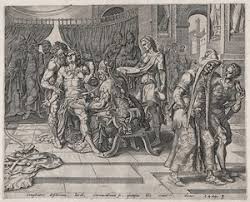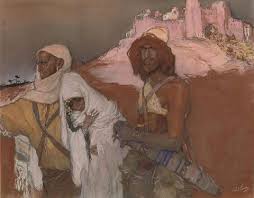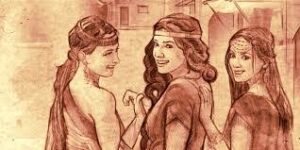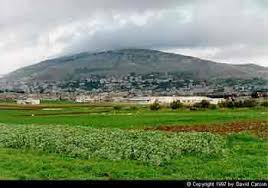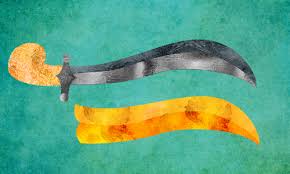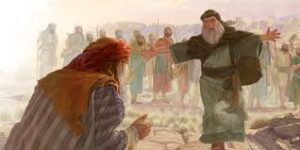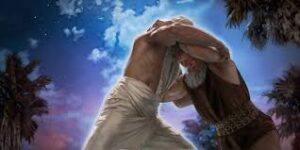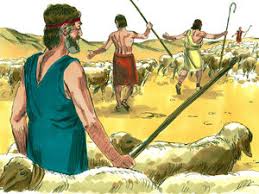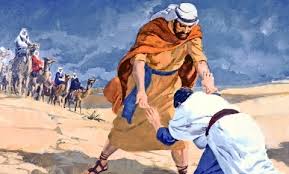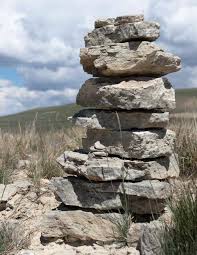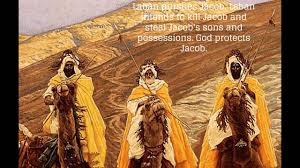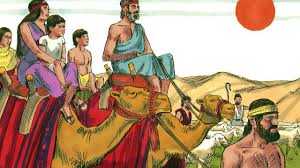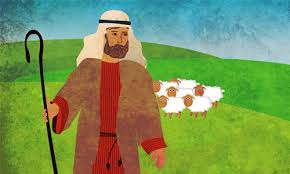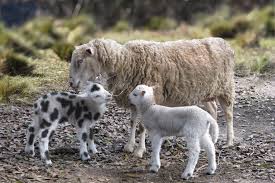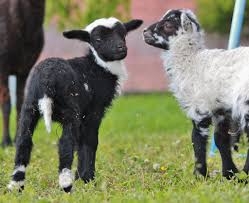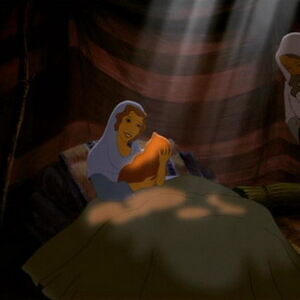If – Jacob’s Rebuke of Simeon and Levi 34: 30-31
Jacob’s Rebuke of Simeon and Levi
34: 30-31
Jacob’s rebuke of Simeon and Levi DIG: Why was this account included in the Bible? How does Jacob rebuke his sons? How do Jacob’s sons rebuke him? How does the slaughter and plunder of Shechem affect the birthright in Jacob’s family? Who ends up with the birthright?
REFLECT: Jacob got to a point in his life where he was spiritually dull. He was a passive father. How can you guard against that in your own life?
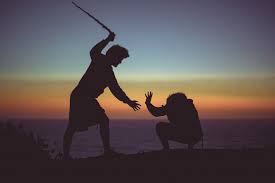
Then Jacob said to Simeon and Levi, “You have brought trouble on me by making me a stench to the Canaanites and Perizzites, the people living in this land. We are few in number, and if they join forces against me and attack me, I and my household will be destroyed’ (34:30). It seems that his concern wasn’t for Dinah but for his own reputation. His outburst suggests more concern for public relations than his daughters honor.
Jacob was a passive father, and a passive father is destructive to the development of his children. Passive fathers destroy their children by refusing to discipline them and change their course of direction. Passive fathers produce insecure and angry children. Without a game plan for life, teenagers perish. God killed Eli the High Priest because he would not discipline his sons (First Samuel 2:22 and 4:4-11). David was a passive father. While Absalom was trying to get his attention, David was chasing Bathsheba and plotting to kill her husband. Where did Absalom learn to lie, cheat and murder? He did exactly what his father taught him to do. However, God is not a passive Father. He says: Have you forgotten the counsel that speaks with you as sons: My son, don’t despise the discipline of ADONAI or become despondent when He corrects you. For ADONAI disciplines those He loves and whips everyone He accepts as a son (Hebrews 12:5-6 CJB).
But Jacob’s sons seemed to have the last word. They said: Should he have treated our sister like a prostitute (34:31)? They believed that Jacob’s concern is misplaced and they were offended by it. When Shechem offered to pay for Dinah, in their eyes that turned Dinah into a prostitute and these hot heads couldn’t tolerate that.They felt that their father had been too willing to compromise, and they believed that their actions of avenging their sister were justified.529 But they did evil in the name of good.
Their instincts were correct for not wanting to assimilate with the Canaanites. The fact is that if they would have intermarried with them, Isra’el’s distinctive identity would have been destroyed and God’s covenant with Abraham would have been negated. Later, the nation of Isra’el was instructed by God to avoid defilement with the Canaanites and Isra’el’s foreign policy was to destroy them completely before they could defile the Israelites. God would say: Do not leave alive anything that breathes. Completely destroy them, the Hittites, Amorites, Canaanites, Perizzites, Hivites and Jebusites, as the LORD your God has commanded you. Otherwise they will teach you to follow all the detestable things they do in worshiping their gods, and you will sin against the LORD your God (Deuteronomy 20:16-18). But even though their instincts were correct in this matter, their actions were evil. They lied and acted carelessly in carrying out vengeance because God hadn’t told them to do anything. On his deathbed when Ya’akov was giving the patriarchal blessing, Simeon and Levi were cursed by not receiving their own territory in the Promised Land (49:5-7).
In addition, the slaughter of Shechem would have far reaching implications with the birthright of Jacob’s family. As the birthright had been an issue between Abraham’s children Ishmael and Isaac, and as it had been an issue in Isaac’s family between Esau and Jacob, it would also be an issue in Jacob’s family. Reuben, who was actually the firstborn, would forfeit his birthright by sleeping with Jacob’s concubine Bilhah (35:21). Then Simeon and Levi, who were next in line for the birthright, would also lose it over this incident. The next in line would be Judah, and he would become the Seed son, the one through whom the Messiah would be born.
When Jacob’s evil sons, justifying their own treachery, asked: “Should he have treated our sister like a prostitute?” Ya’akov had no reply. He had indeed failed. He had opened the door to this, and now he was in desperate need of revival in his own soul, as well as a fresh word of guidance from Elohim. Though Scripture does not clearly say so, it seems most likely that Jacob went to his altar and cried out to God for forgiveness and for instruction. And God, who is gracious and long-suffering, answered him once again.530
One of the biggest questions we can ask about this account is, “Why was it told to us?” One the one hand, it does not seem to have much to do with the continuously progressive revelation of the history of redemption. We could leave this account out of the Bible and we would never seem to miss it. One the other hand, the knowledge of this account is extremely critical for our understanding of Jacob’s blessing and cursing which he uttered on his deathbed (to see link click Ld – The Blessing and Cursing of Jacob’s Sons). Knowing the actions of Levi and Simeon helps us to know why they not granted a geographical inheritance among the tribes of Isra’el (see Lf – Simeon and Levi are Brothers, Their Swords are Weapons of Violence). Unless we had realized the sin which they commited, we would not have been able to understand Jacob’s rebuke.




